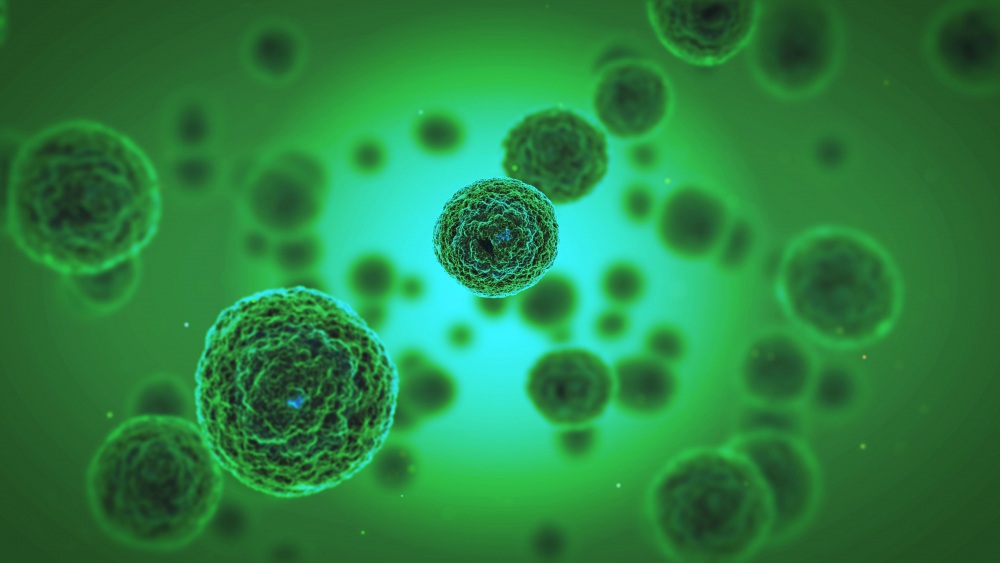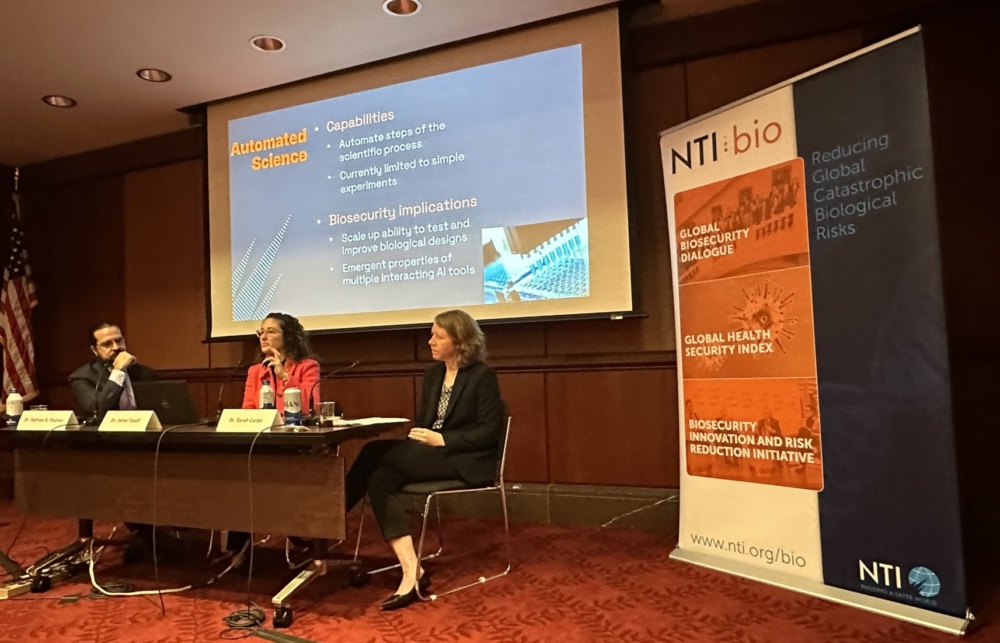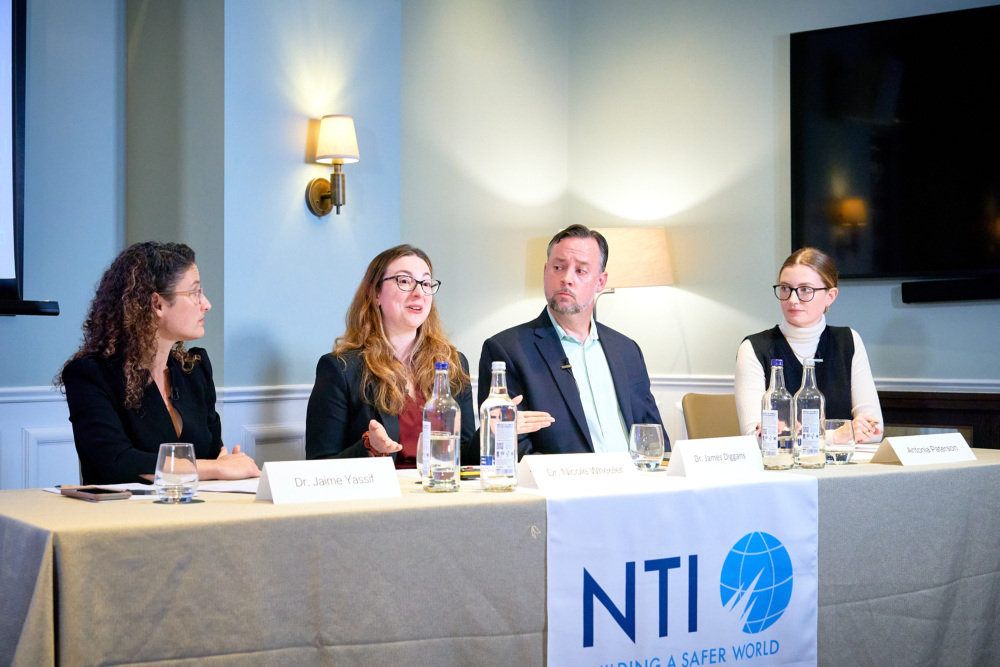
New Analysis: Biological Risks Must Be Among Top Security Priorities

In a new
article published in Health Security,
NTI senior director for global biological policy and programs Beth
Cameron underscores the importance of preparing for catastrophic biological
threats.
“While the world continues to receive wake-up calls –
including recent outbreaks of pandemic influenza, MERS, Ebola, and Zika – two things
are increasingly apparent,” Cameron said. “First, society is changing in ways
that are likely to make a rapidly spreading biological agent even more deadly
and destabilizing. Second, the world is
largely unprepared for a fast-spreading, highly lethal, politically
destabilizing biological event.”
The article is in response to a new framework
published by the Johns Hopkins Center for Health Security that aims to advance scientific
dialogue about potential global catastrophic biological risks (GCBRs).
Read the full article and find other responses
to the framework here.
Stay Informed
Sign up for our newsletter to get the latest on nuclear and biological threats.

NTI | bio Convenes Workshop on Disincentivizing State Bioweapons Development and Use
NTI | bio convened a workshop on “Disincentivizing State Bioweapons Development and Use” a week ahead of the Biological Weapons Convention Working Group meetings in Geneva, Switzerland.

NTI | bio Holds Congressional Event on Convergence of AI and the Life Sciences
NTI | bio hosted a lunchtime event on Capitol Hill to discuss how Congress and other decisionmakers can take action to mitigate emerging risks associated with AI-bio capabilities.

Urgent Steps Needed to Safeguard Rapidly Advancing AI-Bioscience Technologies
Amid significant advances in artificial intelligence (AI), a new NTI | bio report recommends urgent action and oversight by governments, industry, and the scientific community to reduce risks associated with AI-enabled capabilities to engineer living systems.

